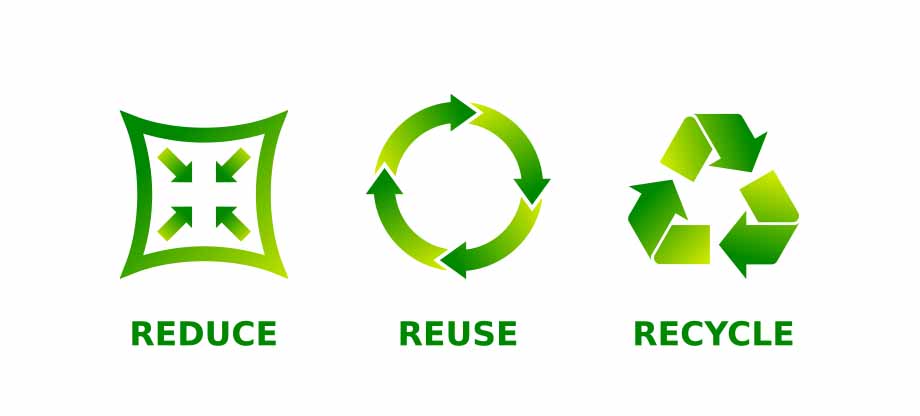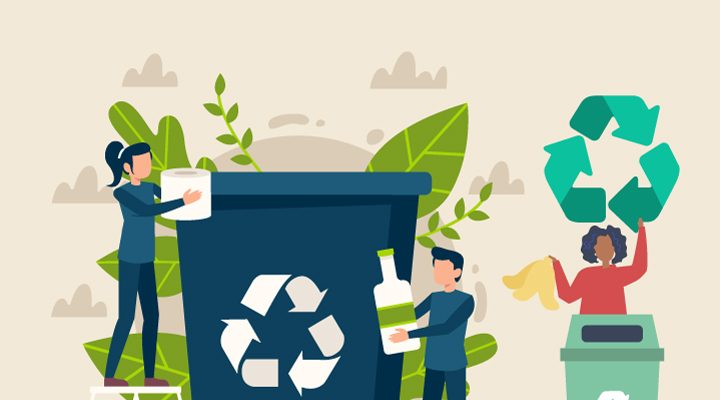Waste management has become a critical issue around the world, as the volume of waste generated by human activities continues to grow. Proper waste management strategies are essential to prevent environmental degradation, protect public health, and conserve resources. There are several strategies for effective waste management that can help to minimize the impact of waste on the environment and create a more sustainable future.
1. Reduce, Reuse, and Recycle
The three Rs of waste management – reduce, reuse, and recycle – are essential strategies for effective waste management. Reducing waste generation is the most effective way to minimize the waste’s impact on the environment. By reducing the amount of waste we generate, we can conserve resources, save energy, and reduce pollution. Reusing items and recycling materials are also essential waste management strategies that help to conserve resources and reduce the amount of waste that ends up in landfills.
2. Composting
Composting is another effective waste management strategy that can help to reduce the amount of waste sent to landfills. Composting involves breaking down organic waste into nutrient-rich compost that can be used as a natural fertilizer for plants. By composting organic waste such as food scraps, yard waste, and paper products, we can reduce the amount of waste sent to landfills and promote a more sustainable way of living.
3. Landfills
Landfills are still an essential waste management strategy, although they should be used as a last resort. Landfills are designed to safely store waste and prevent environmental pollution, but they can also contribute to pollution if not managed properly. Proper landfill management includes measures such as lining the landfill with impermeable materials, collecting and treating leachate, and monitoring the landfill for environmental impacts.

4. Waste-to-Energy
Waste-to-energy is a waste management strategy that involves converting waste into energy through various processes such as incineration and gasification. This strategy can help to reduce the amount of waste sent to landfills and produce energy that can be used to power homes and businesses. However, waste-to-energy also has some environmental concerns, such as air pollution and greenhouse gas emissions, which need to be carefully managed.
5. Extended Producer Responsibility
Extended producer responsibility (EPR) is a waste management strategy that holds manufacturers responsible for the entire lifecycle of their products, including disposal. This strategy can incentivize manufacturers to design products that are more easily recyclable and reduce waste generation. EPR can also help to create a more circular economy by promoting the reuse and recycling of materials.
6. Public Education and Outreach
Public education and outreach are essential strategies for effective waste management. Educating the public on waste management practices and the benefits of recycling and composting can help to promote behavior change and increase participation in waste reduction programs. Outreach programs can also help to raise awareness of the environmental impacts of waste and promote sustainable living practices.
7. Regulatory Framework
Regulatory frameworks are essential for effective waste management. Regulations such as waste disposal bans, product labeling requirements, and waste reduction targets can help to promote sustainable waste management practices and hold businesses and individuals accountable for their waste generation. A well-designed regulatory framework can also encourage innovation in waste reduction technologies and promote a more circular economy.
8. Innovative Technologies
Innovative waste management technologies are essential for promoting sustainable waste management practices. Technologies such as anaerobic digestion, plasma gasification, and pyrolysis can help to reduce the amount of waste sent to landfills and produce energy and other valuable products from waste. Innovative technologies can also help to address specific waste management challenges, such as plastic pollution.
9. Public-Private Partnerships
Public-private partnerships are essential for effective waste management. Collaborations between government agencies, private companies, and non-profit organizations can help to create more comprehensive and effective waste management programs. Public-private partnerships can also help to promote innovation in waste management technologies and increase public awareness of waste management issues.

10. Sustainable Consumption
Sustainable consumption is another essential strategy for effective waste management. By choosing to buy products that are made from sustainable materials, have minimal packaging, and are easily recyclable, we can reduce waste generation and promote a more circular economy. Sustainable consumption can also help to conserve resources, reduce pollution, and create a more sustainable future.
In conclusion, effective waste management is essential for promoting sustainable living practices and protecting the environment. There are several strategies for effective waste management, including reducing waste generation, composting, waste-to-energy, public education and outreach, regulatory frameworks, innovative technologies, public-private partnerships, and sustainable consumption. By adopting these strategies and promoting behavior change, we can minimize the impact of waste on the environment and create a more sustainable future for generations to come.
